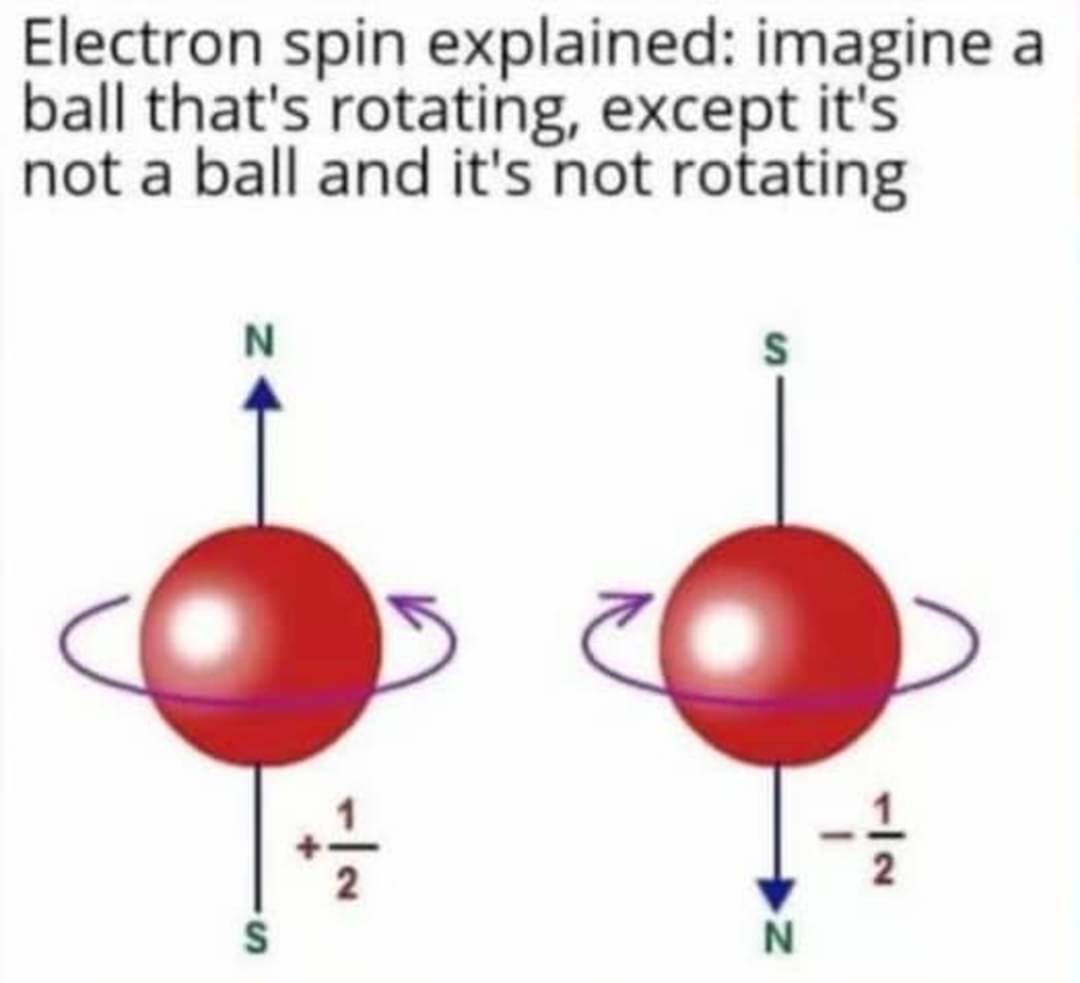this post was submitted on 11 Jul 2024
532 points (100.0% liked)
Science Memes
235 readers
1 users here now
Welcome to c/science_memes @ Mander.xyz!
A place for majestic STEMLORD peacocking, as well as memes about the realities of working in a lab.

Rules
- Don't throw mud. Behave like an intellectual and remember the human.
- Keep it rooted (on topic).
- No spam.
- Infographics welcome, get schooled.
This is a science community. We use the Dawkins definition of meme.
Research Committee
Other Mander Communities
Science and Research
Biology and Life Sciences
- !abiogenesis@mander.xyz
- !animal-behavior@mander.xyz
- !anthropology@mander.xyz
- !arachnology@mander.xyz
- !balconygardening@slrpnk.net
- !biodiversity@mander.xyz
- !biology@mander.xyz
- !biophysics@mander.xyz
- !botany@mander.xyz
- !ecology@mander.xyz
- !entomology@mander.xyz
- !fermentation@mander.xyz
- !herpetology@mander.xyz
- !houseplants@mander.xyz
- !medicine@mander.xyz
- !microscopy@mander.xyz
- !mycology@mander.xyz
- !nudibranchs@mander.xyz
- !nutrition@mander.xyz
- !palaeoecology@mander.xyz
- !palaeontology@mander.xyz
- !photosynthesis@mander.xyz
- !plantid@mander.xyz
- !plants@mander.xyz
- !reptiles and amphibians@mander.xyz
Physical Sciences
- !astronomy@mander.xyz
- !chemistry@mander.xyz
- !earthscience@mander.xyz
- !geography@mander.xyz
- !geospatial@mander.xyz
- !nuclear@mander.xyz
- !physics@mander.xyz
- !quantum-computing@mander.xyz
- !spectroscopy@mander.xyz
Humanities and Social Sciences
Practical and Applied Sciences
- !exercise-and sports-science@mander.xyz
- !gardening@mander.xyz
- !self sufficiency@mander.xyz
- !soilscience@slrpnk.net
- !terrariums@mander.xyz
- !timelapse@mander.xyz
Memes
Miscellaneous
founded 2 years ago
MODERATORS
you are viewing a single comment's thread
view the rest of the comments
view the rest of the comments

You can observe it but doing so changes its behavior. Why? Well... Um... Maybe it's just the simulation breaking down?
It's because to observe something you have to interact with it. Dealing with particles is like playing pool in the dark and the only way you can tell where the balls are is by rolling other balls into them and listening for the sound it makes. Thing is, you now only know where the ball was, not what happened next.
In the quantum world, even a single photon can influence what another particle is doing. This is fundamentally why observation changes things.
holy shit the pool explanation is so good, I'm gonna recycle it for sure
So, if we had a machine that could "see" without photons, we could observe an electron directly? (I know nothing about this)
We have such devices, unfortunately they tend to use electrons instead (electron microscopes). We also have devices that just work by measuring the electromagnetic field (atomic force microscopes). Again though, to measure the field you have to interact with it, so you can't do it immaculately.
Electrons are especially hard because they are so incredibly light yet intensely charged compared to everything that can actually interact with them.
When talking about particles, the interaction very rarely involves actual contact, as that tends result in some manner of combination. Two electrons for instance don't really bounce off each other, they just get close, interact and then diverge. If a photon 'hits' an electron it gets absorbed and a new one is emitted. Look up Feynman Diagrams if you want to see some detail to this. I don't think you need any deep knowledge to benefit from looking at them, they are really quite an elegant way to visually show the mathematics.
like trying to measure a soft noodle lengthwise with a caliper